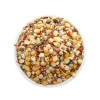
Lower Respiratory Tract Infections in Pigeons
If you’re a racing pigeon fancier, you’re no stranger to the challenges your birds face during training and competition. But there’s one silent issue that often flies under the radar lower respiratory tract infections. While upper respiratory issues like nasal discharge and sneezing get attention quickly, infections deeper in the lungs can go unnoticed until they seriously impact race performance.
In this post, we’ll break down the causes, symptoms, treatments, and most importantly, preventive strategies for lower respiratory infections in racing pigeons. By understanding this condition, you can take the right steps to keep your pigeons breathing easy and racing strong.
What Are Lower Respiratory Tract Infections?
Lower respiratory tract infections (LRTIs) in pigeons affect the trachea, bronchi, air sacs, and lungs—critical components of your bird’s oxygen delivery system. When this system is compromised, oxygen intake drops, which translates into poor endurance, slower flight times, and greater vulnerability to other illnesses.
Causes of Lower Respiratory Infections in Racing Pigeons
There are several culprits behind lower respiratory tract infections:
1. Bacterial Infections
-
Common bacteria include E. coli, Salmonella, Staphylococcus, and Mycoplasma species.
-
These bacteria often enter through contaminated water, feed, or bedding.
2. Fungal Infections
-
Aspergillosis is a common fungal infection that attacks the lungs when pigeons inhale mold spores from dusty lofts or moldy grain.
-
Fungi thrive in warm, damp, unclean environments.
3. Viruses
-
While less common, viral infections can damage lung tissue, allowing secondary bacterial or fungal infections to take hold.
4. Poor Loft Conditions
-
Dust, ammonia buildup from droppings, and poor ventilation lead to constant irritation of the airways and can trigger infection.
5. Stress and Overtraining
-
Long training flights, frequent handling, or sudden weather changes suppress the immune system, making pigeons more prone to respiratory issues.
Symptoms of Lower Respiratory Infections
Unlike upper respiratory infections, LRTIs can be difficult to spot early. Be on the lookout for:
-
Labored breathing
-
Open-mouth breathing or panting at rest
-
Reduced flight stamina
-
Slower returns from training or races
-
Depression and fluffing of feathers
-
Tail bobbing while breathing
-
Rattling or clicking sounds from the chest
-
Decreased appetite and weight loss
These symptoms can easily be mistaken for post-race fatigue or general malaise—so regular observation is crucial.
Why LRTIs Impact Race Performance
Racing pigeons rely on peak respiratory function to supply their muscles with oxygen during flight. Infections in the lungs or air sacs reduce lung capacity, restrict airflow, and result in lower oxygen delivery to the muscles.
This leads to:
-
Slower flight speeds
-
Increased recovery times
-
Greater susceptibility to other diseases
-
Compromised performance even with excellent conditioning
Diagnosing LRTIs in Pigeons
If you suspect an LRTI, early diagnosis is essential. Here’s how to confirm:
-
Veterinary testing: Swabs, cultures, or x-rays can help identify bacteria or fungal infections.
-
Endoscopy: This allows visual inspection of the trachea and air sacs.
-
Lab services: Specialized pigeon laboratories can test droppings and throat swabs.
Regular health check-ups and fecal monitoring during the racing season can help catch problems early.
Effective Treatment Options
Once diagnosed, timely and appropriate treatment can save your pigeon’s season—or even its life.
1. Antibiotics (for bacterial infections)
-
Use a broad-spectrum antibiotic like doxycycline or enrofloxacin as prescribed by a vet.
-
Avoid overuse—antibiotic resistance is a growing concern.
2. Antifungals (for fungal infections)
-
Drugs like amphotericin B, itraconazole, or nystatin are effective.
-
Combine with environmental cleaning to avoid reinfection.
3. Rest and Recovery
-
Isolate affected birds and cut back on training.
-
Allow full recovery before reintroducing them to the loft or race team.
4. Immune Support
-
Use supplements with vitamin C, E, and selenium.
-
Probiotics can help restore gut health, which supports overall immunity.
Preventing Respiratory Infections in the Loft
Prevention is always better than cure. Here’s how to keep your loft and birds healthy:
Improve Loft Ventilation
-
Ensure a steady flow of fresh air.
-
Use fans or vents to prevent ammonia buildup.
Dust Control
-
Use low-dust bedding and clean lofts frequently.
-
Store grain in a dry, well-ventilated space.
Disinfection
-
Disinfect lofts regularly using pigeon-safe products.
-
Clean perches, drinkers, and feeders daily.
Supplementation
-
During stressful periods, supplement with products like:
-
Respiratory support herbs
-
Vitamin-rich tonics
-
B-complex for energy and recovery
-
Quarantine New Birds
-
Keep new arrivals isolated for at least two weeks to avoid introducing pathogens.
Feeding Tips for Respiratory Health
A balanced diet supports a strong immune system, especially during the race season.
-
High-quality grains with minimal dust
-
Omega-3 rich seeds (flax, hemp) to reduce inflammation
-
Garlic and oregano oil—natural antimicrobials that support lung health
-
Liver support supplements to aid detoxification
Checklist for Respiratory Health in Racing Pigeons to aid in the health of your birds
Daily Loft Maintenance
-
Clean droppings and remove wet bedding
-
Ensure drinkers and feeders are disinfected
-
Check for signs of nasal discharge or sneezing
-
Provide fresh, dust-free grains
Ventilation & Environment
-
Maintain airflow (not drafts) with vents or fans
-
Control humidity and reduce dampness
-
Keep loft dust-free—avoid straw or dusty bedding
-
Use low-dust grit and mineral sources
Disease Prevention
-
Quarantine all new birds (14–21 days)
-
Monitor birds for labored breathing or tail bobbing
-
Test droppings/swabs during race season
-
Use a proper vaccine program (consult vet)
Supplementation
-
Provide garlic, oregano, or eucalyptus oils weekly
-
Offer multivitamin or respiratory tonic after races
-
Use probiotics post-treatment to restore gut flora
-
Support with liver detox and immunity boosters
Disinfection Routine (Weekly/Bi-Weekly)
-
Disinfect perches, walls, and nest boxes
-
Use vet-approved products (e.g., Virkon S)
-
Air dry the loft thoroughly before returning pigeons
Warning Signs to Watch For
-
Wheezing, rattling, or open-mouth breathing
-
Sneezing or wet eyes
-
Fluffed-up appearance, lethargy
-
Drop in performance or feed intake
🗓️ Supplement Schedule for Respiratory Support (Race Season)
| Day | Morning Feed/Water | Evening Feed/Water | Purpose |
|---|---|---|---|
| Mon | Probiotic + Electrolyte | Freshwater | Recovery & gut health |
| Tue | Garlic oil (feed) | Multivitamin (water) | Immunity + lung support |
| Wed | Eucalyptus/oregano oil | Freshwater | Respiratory cleansing |
| Thu | B-complex + Liver tonic | Freshwater | Energy & detox |
| Fri | Respiratory powder (e.g. Doxy or herbal) | Freshwater | Antibacterial/antifungal |
| Sat | Rest day (grit + clean water) | Freshwater | System reset |
| Sun | Probiotic or Immuno-tonic | Freshwater | Gut & immune boost |
Tip: Adjust dosage based on product instructions. Always provide grit and fresh greens alongside the supplement plan.
🧡 Recommended Products
-
Vet Schroeder Tollisan Fungi Powder – For fungal respiratory threats
-
PHP Respiratory Care Tonic – Herbal support for breathing
-
Electrolytes & B-complex – Post-race muscle and nerve support
-
Probiotics & Garlic Oil – Gut + immune balance
When to Consult a Vet
If symptoms persist for more than a few days, or multiple birds are affected, consult a veterinarian immediately. Delayed treatment may lead to permanent damage to the lungs or air sacs.
Final Thoughts
Lower respiratory tract infections in racing pigeons are often overlooked but can be a major reason for poor race results. By staying vigilant, maintaining a clean and well-ventilated loft, and using proper supplements and medications when needed, you can protect your pigeons’ lung health year-round. A strong respiratory system means stronger races, better endurance, and a happier, healthier loft.
Want to keep your pigeons race-ready and infection-free?
Explore our range of respiratory support supplements, loft disinfectants, and immune boosters tailored for racing pigeons.


